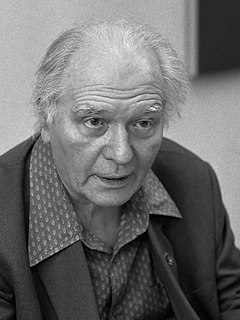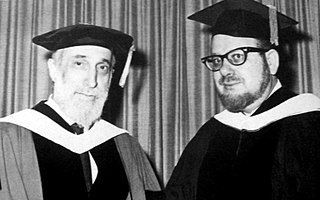A Quote by Joseph Addison
Music is the only sensual gratification which mankind may indulge in to excess without injury to their moral or religious feelings.
Related Quotes
Moral Injury is differentiated from PTSD in that it directly relates to guilt and shame veterans experience as a result of committing actions that go against their moral codes. Therapists who study and treat moral injury have found that no amount of medication can relieve the pain of trying to live with these moral burdens.
Let it simply be asked where is the security for property, for reputation, for life, if the sense of religious obligation deserts the oaths, which are the instruments of investigation in the Courts of Justice? And let us with caution indulge the opposition, that morality can be maintained without religion. Whatever may be conceded to the influence of refined education on minds of peculiar structure, reason and experience both forbid us to expect that National morality can prevail in exclusion of religious principle.
In writing, as in life, faults are endured without disgust when they are associated with transcendent merit, and may be sometimes recommended to weak judgments by the lustre which they obtain from their union with excellence; but it is the business of those who presume to superintend the taste or morals of mankind to separate delusive combinations, and distinguish that which may be praised from that which can only be excused.
We cannot live without trade. A society can neither advance nor improve without excess of disposable income. This excess can only be amassed through the production of goods and services necessary or attractive to the mass. A financial system which allows this leads to inequality; one that does not leads to mass starvation.
Let us consider what we call vicious luxury. No gratification, however sensual, can of itself be esteemed vicious. A gratification is only vicious when it engrosses all a man's expense, and leaves no ability for such acts of duty and generosity as are required by his situation and fortune. The same care and toil that raise a dish of peas at Christmas would give bread to a whole family during six months.
It goes with the passionate intensity and deep conviction of the truth of a religious belief, and of course of the importance of the superstitious observances that go with it, that we should want others to share it - and the only certain way to cause a religious belief to be held by everyone is to liquidate nonbelievers. The price in blood and tears that mankind generally has had to pay for the comfort and spiritual refreshment that religion has brought to a few has been too great to justify our entrusting moral accountancy to religious belief.
By helping to raise man above the level of bestial vegetation, faith contributes in reality to the securing and safeguarding of his existence. Take away from present-day mankind its education-based, religious-dogmatic principles- or, practically speaking, ethical-moral principles- by abolishing this religious education, but without replacing it by an equivalent, and the result will be a grave shock to the foundations of their existence.
There can be, therefore, no true education without moral culture, and no true moral culture without Christianity. The very power of the teacher in the school-room is either moral or it is a degrading force. But he can show the child no other moral basis for it than the Bible. Hence my argument is as perfect as clear. The teacher must be Christian. But the American Commonwealth has promised to have no religious character. Then it cannot be teacher.



































